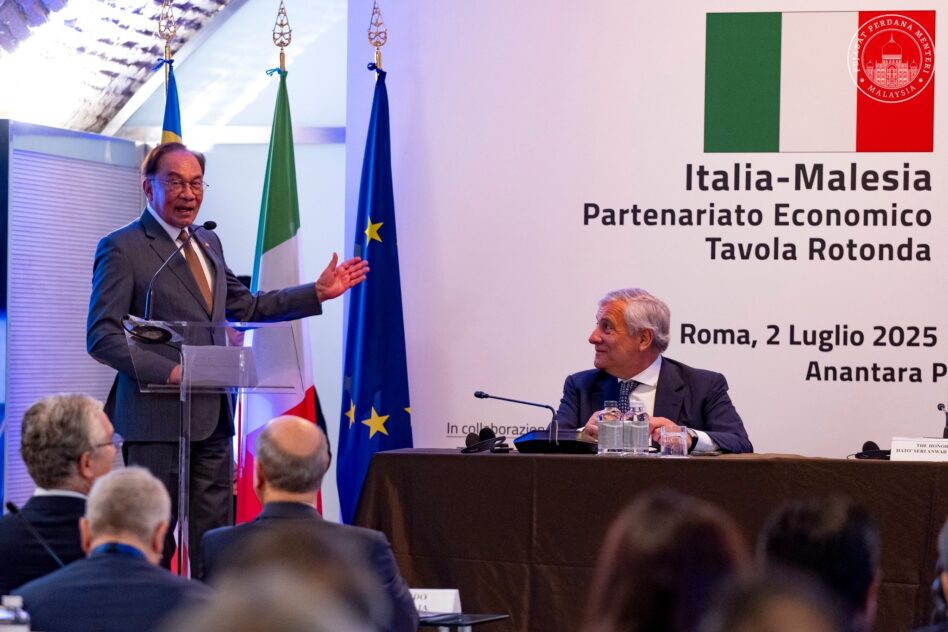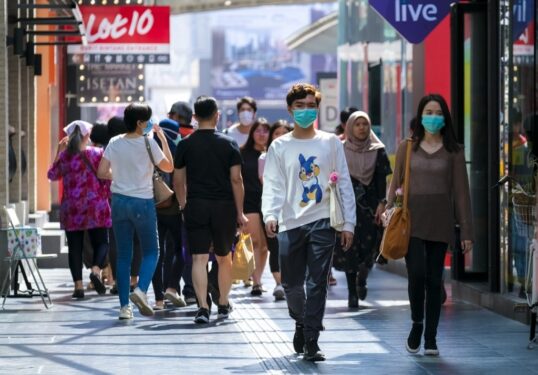By Datuk Rais Hussin
NATIONAL food security is a key pillar in the overall strategy of national development due to its reciprocal relationships with other socio-economic fields. An effective national food security strategy will create availability and affordability, therefore help save on household expenses.
On the Government side, most of the country’s allocations can be channelled to other deserving sectors.
We understand that one of the unique features of the Industrial Revolution 4.0 (4IR) is the achievable efficiencies for the entire industry. The agricultural industry is among the sectors that will benefit greatly from 4IR.
Through the power of 4IR, the agricultural industry will manage and provide food security to people in a more organised manner, while reducing pressure on various resources.
Some aspects of technology have now become commonplace in the agricultural sector and has evolved in a short period due to the incoming updates to 4IR technology.
This caused difficulties in adapting, among the early generation farmers, as they are accustomed to traditional farming methods including having extensive farms and utilising high levels of labour.
4IR is regarded an urgency for food safety. Therefore, it is not surprising that leading countries in the field of food security such as Finland, Ireland, the Netherlands, Germany, Japan, Singapore and South Korea have long increased their technological capabilities to serve their people through their respective versions of “Society 5.0”.
A more detailed analysis of leading countries through Global Food Security shows that they have focused on improving agricultural and food technology.
They prioritise high-tech agriculture, engineering capabilities and economic principles, establishing them as pillars of the national food security strategy in their respective countries.
Among the trends in the countries involved in this sector is making food security a top priority, the provision of large investments in agricultural technology research and development, as well as a special focus on small farmers and local agricultural technology entrepreneurs through innovative funding, incentive schemes and extensive e-commerce networking.
In this regard, having a clear national food safety strategy is one of the most important requirements for all other food safety elements to be properly integrated.
Recognising that food security is a national issue requiring breadth and depth in solutions, instead of just a simple introduction of new regulations.
With that said, the Malaysia Digital Economy Corporation (MDEC) has a proven concept in the agricultural sector. MDEC pilot deployment of 4IR agri-tech was highly successful in various agricultural activities such as smart fertigation, smart misting, smart aquaculture, smart poultry, smart irrigation and smart soil monitoring.
It has been observed that agri-tech helped increase productivity, quality and income of small farmers by over 20%. Many farmers enjoy higher incomes and have successfully brought their produce to market.
“Whole-of-government” strategy
Putting the agenda on a high pedestal results in a “whole-of-government strategy”, where there is a concerted effort across all agencies and ministries. There is no unhealthy competition, since all actors and players in the food security ecosystem can work together.
Such concerted effort will result in effective policy implementation, creating an entire ecosystem of support including various players such as producers, academia and industry research and development (R&D), policy makers and even consumers.
History has demonstrated how other countries look at the current situation and how they have taken important steps to ensure their national food security while Malaysia has achieved a zero score in food safety indicators and policies under the Global Food Safety Index (GFSI) 2020.
Therefore, it is time to have a holistic approach and strategy by the Government to make food security a top priority.
Results from MDEC’s Digital Agtech pilot projects have showcased the viability of digital technologies and automation in agriculture. However, there is room for even more technological improvement.
Malaysia 5.0’s vision is to create a society that is highly integrated with technology, as well as to be governed by inclusive and equitable eco-environmental principles and practices.
In the near future, innovative fintech and trading platform such as blockchain-based peer-to-peer (P2P) marketplace platform may be considered to support small farmers by minimising the role of the middle-men (if not cut out entirely) and ensure best values for consumers and better margins for the farmers.
Similar technologies should be applied to other crops in Malaysia, rice in particular. Despite being a major rice consumer, Malaysia is only producing roughly 70% of the total demand internally, while the remaining are imported.
In fact, its self-sufficiency level dropped slightly from 70% in 2018, to 69% in 2019. A global crisis such as COVID-19 has shown Malaysia’s vulnerability in food security when trade activities are halted, depriving Malaysia of its staple food.
Thus, in addition to transcending the current notion of food security (achieved via imports supplementation) to actual self-sufficiency (at least for staple foods, major livestock and aquaculture; for obvious national security reasons), there is existing and sizeable captive market with an upward trend to be capitalised on and technological advancement is the only way forward towards food safety, security and sovereignty.
The time to act on this is now. – June 7, 2021.
Datuk Rais Hussin the chairman of Malaysia Digital Economy Corporation (MDEC).
The views expressed are solely of the author and do not necessarily reflect those of Focus Malaysia.









